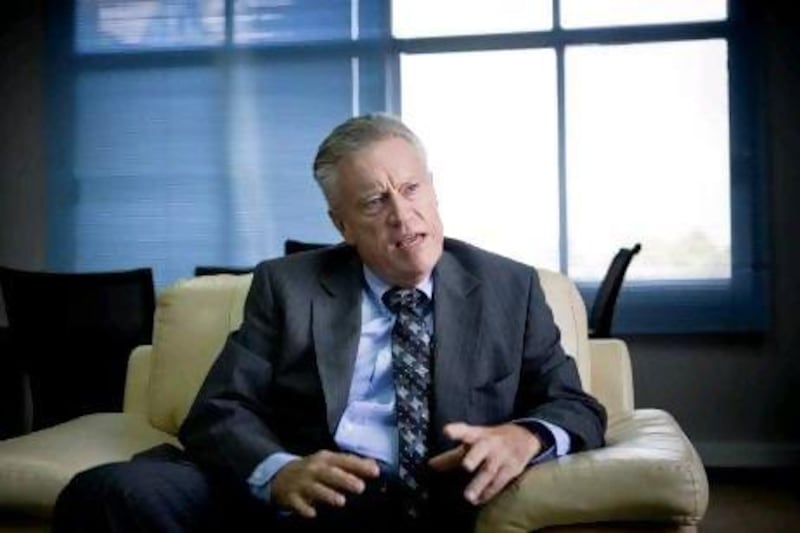ABU DHABI // Staff at the Higher Colleges of Technology have finally received a pay rise following a two-year freeze, after the university reached a deal to end its long-running budget difficulties.
But reaction to the 2 per cent increase was mixed.
Longer-term staff have previously received an annual merit rise of 2 per cent, plus a 4 per cent cost of living allowance. That has not been awarded since 2008.
Emirati staff were especially disappointed not to receive rises anywhere near the 20 per cent awarded by some other government departments.
The pay rise had been on hold because of budget problems that have dogged HCT for two years.
HCT, the country's largest federal university with more than 20,000 students at 17 campuses, started this academic year with a shortfall of Dh333 million, or 25.8 per cent of its projected budget.
Under a new deal between the Ministry of Higher Education and Scientific Research and the Ministry of Finance, funding for HCT - like that at the other federal universities, Zayed University and UAE University - is now based on student numbers.
"The expat staff are very pleased," said Dr Dave Pelham, director of the Fujairah colleges. "Some of the Emirati staff were expecting something much larger, similar to the raises given to some of the federal ministry employees."
Dr Bob Moulton, head of the RAK colleges, said expatriate staff had been glad of any rise, especially considering the state of the job market in some of their home countries.
"Some expat faculty noted that in their home country cost-of-living increases in higher education have not been awarded in recent years and, in some instances, across-the-board cuts and unpaid furloughs have occurred," Dr Moulton said.
"Given those contexts, our increase was most welcome, particularly when the relatively low rate of inflation in the UAE is considered."
Dr Mark Drummond, the provost of HCT, said: "HCT is grateful that agreement has finally been reached with the Ministry of Finance over an enrolment-based funding formula.
"This gives our finances much more predictability and enabled us to seek approval for a modest salary increase this year. This increase is in keeping with HCT policy."
One expatriate teacher, who did not wish to be identified, said: "People are naturally disappointed in not receiving their normal increment, but crumbs of cake falling off the table are better than no crumbs at all.
"Inflation has fallen away in the UAE so it's not such a big deal any more. I think most faculty are aware of HCT's budget issues with the Ministry of Finance.
"HCT still provides one of the best packages in higher education in this part of the world. Its faculty base is stable and ageing so people are clearly staying on, despite the 2per cent."
Another said some felt so snubbed that they were considering quitting.
A teacher who has been at HCT for several years reflected on the declining size of its pay rises.
"In the educational sector, people in Fujairah have been happy to be granted the 2 per cent as there was no increase last year," he said.
"New teachers seem generally overjoyed but old-timers remember when a 6 per cent increase was the level of the annual increase.
"Two per cent is gratefully received but it does not reflect the way inflation has eroded the take-home pay and what people are able to save."
HCT, which specialises in vocational courses and training, has struggled for cash since 2005 and began overdraft borrowing in 2009.
Its teachers earn an average of Dh20,000 a month, depending on qualifications.






